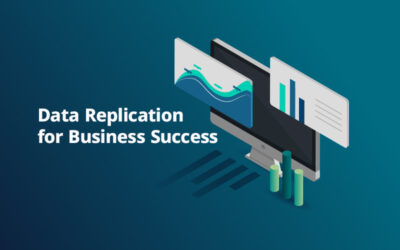Being one of the important assets of any organization, data has become a crucial element for every single industry. The global wave of digitization has brought in significant transformations in every single industry and healthcare is no exception. With the healthcare industry becoming highly data–intensive, the fundamental focus is on how to automate, simplify and optimize the use of data. Managing, integrating and harnessing huge piles of healthcare data can help enhance operational performance. Digitization has led to the growth of data in velocity, volume and value. Healthcare data management is now critically important. In all of these, the services of business process outsourcing companies have been found to be indispensable, particularly when there is a huge amount of data to process and manage.
Understanding the Concept of Health Data Management (HDM)
In simple terms, health data management (HDM) is the practice of making sense of data and managing it to the benefit of healthcare organizations, practitioners, and ultimately patient wellbeing and health. Also known as health information management (HIM), it is the systematic organization of health data in digital form. This can range from electronic medical records (EMR) generated as a result of doctor visits, to electronic health records (EHR), to handwritten medical notes scanned to a digital repository. The concept of HDM is not only about organizing medical data but also integrating it and enabling its analysis to make patient care more efficient while protecting the privacy and security of the data.
Systematic data management will benefit the healthcare industry in more than one way. First and foremost, it enables physicians to develop better patient profiles. By combining a patient’s electronic medical record with data from medical wearable devices and consumer-level testing, a holistic image of that patient can be developed, providing doctors with a good foundation for continuous treatments. In addition, digitizing medical records also help improve information availability and accessibility while increasing the likelihood of data being archived.
Key Challenges Involved in HDM
While data brings several unique transformations in healthcare, it also brings certain challenges. In fact, the influx of electronic healthcare records places an additional strain on healthcare providers to manage data in an efficient way ensuring integrity, interoperability and security while complying with corresponding policies and regulations. Here are a few challenges faced by health data professionals today –
- Fragmented Data – Healthcare data may either be structured or non-structured and may come from a number of sources and in different formats like – paper, digital formats, images/video/multimedia files, spreadsheets or specialized formats such as the DICOM format used for imaging (X-rays, MRIs and ECGs MRI scans). Data collection and aggregation communities are equally fragmented, making the extraction and integration of data a real challenge. Healthcare providers, payers and patient network communities all collect data, but unifying the information involves certain challenges. Data duplication may arise, which results in inaccurate and incomplete health care member profiles with little insight into a patient’s well-being. A lack of understanding, monitoring and support cause low adherence and high readmission risks.
- Changes to Data and Quality – Healthcare data changes constantly. Patients undergo a wide range of tests and treatment modalities within a few years. The treatment and medications evolve over time and new modalities like Telehealth models, create new types of data. As data can be considered as the fuel that powers the operations of any information system, ensuring data integrity means ensuring the system’s functionality and effectiveness. Dirty data – characterized by incompleteness, invalidity, inaccuracy, duplication and non-standardization – can lead to medical mistakes that directly affect patients’ well-being and safety, damaging healthcare providers’ reputation and leading to costly lawsuits. In addition, low quality data can lead to inefficient internal and external communication, wrong payments and delayed treatments. Faulty data also has the potential of inhibiting medical research and development activities by providing misleading information.
- Data Interoperability – Data – in order to become most useful – needs to yield consistent meaning and shared and transferred among people, organizations and systems – the concept is called data interoperability. Data interoperability consolidates patients’ data from a range of electronic healthcare systems, and enables patients to have complete control over the sharing of healthcare records, thereby facilitating research and innovation. EHR data stored within the healthcare provider environment needs to be standardized, but external health testing providers, pharmacies and others may use different systems and protocols. Therefore, effectively sharing complete medical records and integrating different medical data management systems is an ongoing challenge, which requires patients’ willingness to share information.
- Lack of Integration between Clinical and Administration Systems – An integration gap between patient care and administration can occur, even internally. Medical records maintained by physicians and on the hospital floor have to be reflected in accurate insurance claims and patient billing. The data management system has to be configured to ensure that treatment codes match and the care given is accurately tracked for both administrative purposes and analytics.
- Data Security – Data security is a major concern for any business, particularly the healthcare industry. During each movement from one repository to another, data could be compromised. That is what makes data security an overarching concern these days. Data security is all about the practice of securing data using powerful hardware and software technologies and ensuring that the data you have is accurate and reliable. An effective data security plan includes aspects such as collecting only the required information, safeguarding the stored data and destroying any information that is no longer important. With the increasing number of cyber attacks, data breaches and invasion of private personal data, organizations must recognize the new and evolving international privacy and security regulations. Breach of sensitive information carries civil and criminal penalties. The European Union’s (EU) enforcement of the Global Data Protection Regulation (GDPR) which came into force on 25th May 2018 brings about changes in the privacy and data security policies for most of the companies operating in the EU as well as across the globe.
- Regulations and Compliance – Medical data is sensitive and must adhere to government regulations, such as the Health Insurance Portability and Accountability Act of 1996 (HIPAA) in the US. Data discovery challenges and poor data quality make it much more difficult to perform the required audits, meet regulatory requirements and limit the diversity of data healthcare providers can use for the benefit of patients. Adhering to the HIPAA rules may help in effective data governance. Effective data governance within a healthcare organization can help better manage and use data, create processes for resolving data issues and eventually, and enable users to make decisions based on high-quality information assets. However, all this begins with better data collection and making sure that the data collected is accurate, up-to-date, complete, and in compliance with the HIPAA regulatory standards. A well-designed HIPAA-compliant web form solution can be instrumental in enabling healthcare organizations to manage and streamline data collection processes, including – new patient forms, HIPAA release forms, contact update forms, patient medical history forms, and consent forms.
As the healthcare industry has unique data needs, data collection and management can be extremely challenging, time-consuming and risky if not done properly. Data management in healthcare requires a strategic approach whereby the three aspects of data quality, security and interoperability are properly addressed. To keep up with the ever-changing data landscape, healthcare organizations need a data collection solution that is primarily focused to handle healthcare-specific use cases, and security measures and compliance that take into account the unique needs of the healthcare industry. Professional data entry companies will help ensure good data quality, accurate sharing and effective management of healthcare data. A good healthcare data management system, if implemented in a correct and effective manner, can help manage huge volumes of valuable data in the most efficient manner.
Ready to take your business to the next level? Contact Managed Outsource Solutions (MOS) today!
Call us @ 1-800-670-2809 and get your Free Trial!




